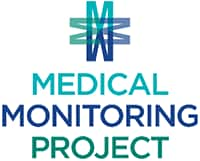Medical Monitoring Project (MMP)
- Centers for Disease Control and Prevention. Data Tables: Quality of Life and HIV Stigma—Indicators for the National HIV/AIDS Strategy 2022–2025, by Priority Populations, CDC Medical Monitoring Project, 2017–2021 Data Cycles. HIV Surveillance Special Report 34.

About MMP
The Medical Monitoring Project (MMP) arose out of a need for a locally and nationally representative, population-based surveillance system that could provide information about the behaviors, clinical outcomes, quality of care, and barriers to care and viral suppression among people with diagnosed HIV. The project is led by state, local, and territorial health departments in partnership with the Centers for Disease Control and Prevention (CDC). Participants are randomly selected, and data are collected from both an interview and an abstraction of the participant’s medical record.
From 2005-2014, only people receiving HIV medical care were sampled for the project. In 2015, the sampling methodology was expanded to include all adults with diagnosed HIV, regardless of whether or not they are in HIV medical care. This means that since 2015 MMP data has represented all adults with diagnosed HIV, both on a national level and within the 23 areas that take part in the project.
Why are MMP data important?
MMP data can be used to guide policy and funding decisions aimed to increasing engagement in care and improving quality of care, and decrease disparities experienced among people with HIV throughout the United States. The project can answer questions about the care and services that people with HIV receive, including:
What services do people need, but not receive?
How many people with HIV receive HIV medical care?
What are the barriers to accessing care, prevention, and support services?
How is HIV treatment affecting people with HIV?
Information gathered from MMP can then be used to:
- Highlight disparities in care and services
- Advocate for needed resources for people with HIV
MMP also provides data for the high-priority national HIV prevention social determinants of health indicators for the National HIV/AIDS Strategy that are associated with negative outcomes and affect people’s quality of life. These indicators include HIV stigma, unstable housing, unmet needs for mental health services, unemployment, and food insecurity. These indicators help monitor national progress towards ending the HIV epidemic.
For questions, call the national MMP information line, (404) 639-6475, or visit the project area webpage for the contact information of the nearest participating health department.
